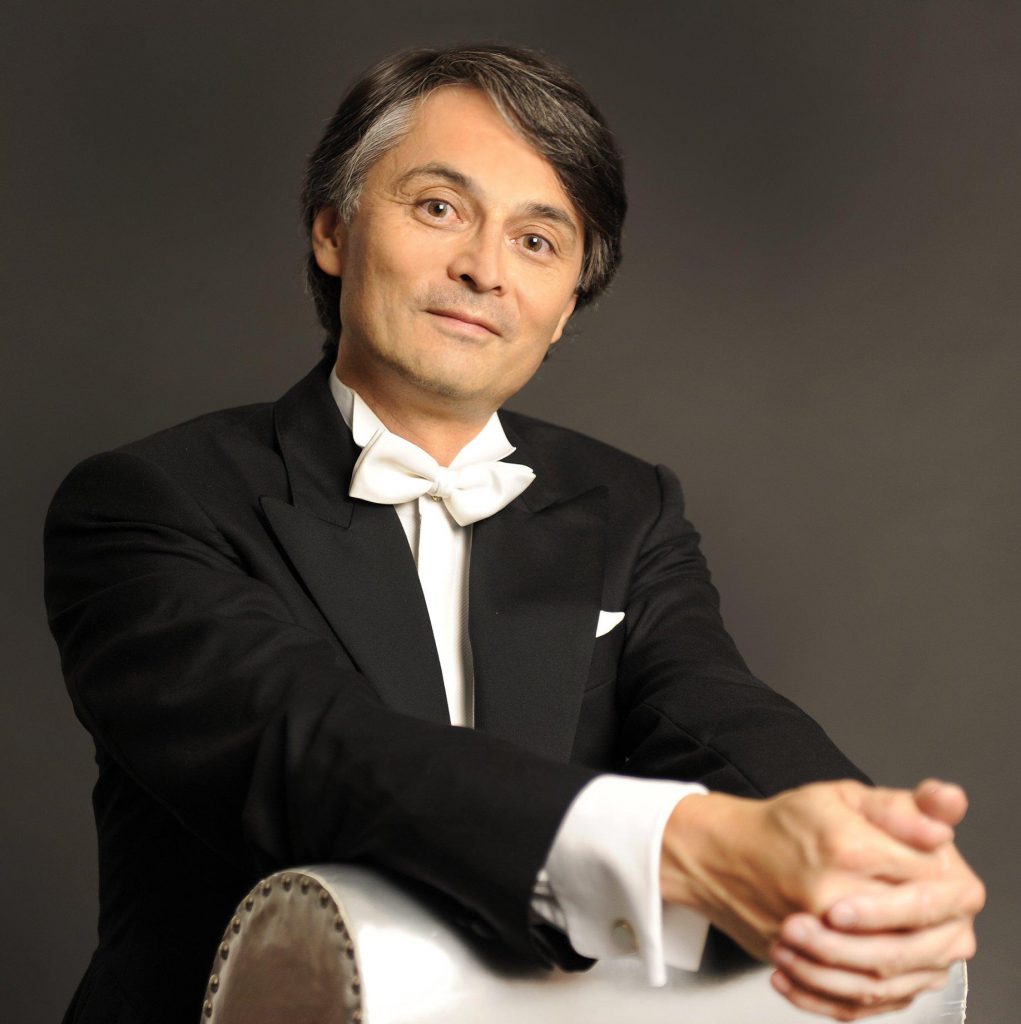Märkl, Utah Symphony warm up the winter chill with Spanish program

Jun Märkl has been a frequent guest conductor of the Utah Symphony, appearing in Abravanel Hall almost every season since his first engagement in 2012.
Past appearances have seen him conducting weighty programs, But this week he was able to let his hair down, as it were, and indulge in populist Spanish-flavored pieces, including Emmanuel Chabrier’s España and Maurice Ravel’s ubiquitous Boléro.
All of these works are timeworn audience favorites, but what was remarkable at Friday night’s performance was how Märkl made these well-known pieces seem fresh and interesting. It was as if one were hearing them for the first time—not an easy task to accomplish, but he did so brilliantly.
The concert opened with a lively reading of España. The Japanese-German conductor coaxed a crisp and precise performance from the orchestra that captured the spirit and character of this short piece beautifully.
Joining the conductor and orchestra for Manuel de Falla’s Nights in the Gardens of Spain was Argentinian pianist Ingrid Fliter. Even though Nights has a prominent, and frequently virtuoso, piano part, it’s not in the strictest sense a concerto. The piano and orchestra are intrinsically bound to each other, often playing off one another to create a rich instrumental fabric for the themes to unfold.
Nights is an evocative and colorful work with sudden, almost impetuous, shifts in mood and character — moving from soft, contemplative moments to wildly exuberant interludes. Both Märkl and Fliter captured this musical dichotomy with their detailed attention to dynamics and expressions.

Fliter is an expressive pianist who fully invests herself in the music. Her approach to Nights was understated. She eschews excessive gestures and lets the music speak for itself. Her playing Friday was dynamic, assertive and well articulated, and she always made sure that she maintained a fine balance between her and the orchestra.
In the opening movement, “In the Gardens of the Generalife,” the players underscored the enchantment of the music with ardent playing and finely honed expression. The changing moods were seamlessly presented and delivered.
The middle movement, “A Dance is Heard in the Distance,” was given a nuanced reading that allowed de Falla’s broad harmonic palette to be the star. The fluid playing of both pianist and orchestra was dynamic yet remarkably understated.
The final movement, “In the Gardens of Sierra de Córdoba,” enters without a break. Märkl and Fliter dove into the music with gusto, giving an impassioned reading that was powerful and rhythmically charged. This was an exceptional and finely balanced collaborative effort y pianist, conductor and orchestra.
The second half began with seven selections from Georges Bizet’s best known opera, Carmen, in an arrangement by Fritz Hoffman. Right from the opening notes of the Prelude, Märkl’s account brought out the alternately intense passion and lyrical beauty of each of these pieces.
Principal trumpet Travis Peterson put his versatility and musicality on display throughout and particularly in the “Séguidille” and the “Chanson de Toréador.” And in the “Danse bohéme,” flutistsMercedes Smith and Caitlyn Valovick Moore played with well-crafted phrasings and seamless lyricism.
In Nikolai Rimsky-Korsakov’s Capriccio espagnol, Märkl elicited bold, ebullient playing from the musicians that captured the robustness of this shwowpiece. But in the more lyrical sections, Märkl brought out the flowing lines with grace and elegance. Concertmaster Madeline Adkins acquitted herself wonderfully in her extended, cadenza-like solo that opens the second half of the piece.
Closing out the concert was Ravel’s warhorse, Boléro. Märkl emphasized the sultry, seductive character of the music in a well-executed interpretation, with a seamless and cohesive crescendo. Interestingly, Märkl placed the snare drum, played by principal percussionist Keith Carrick, in the middle of the cellos. And at the end, acknowledging the audience’s wild applause, he brought Carrick out for a solo bow.
The Spanish theme extended to the encore, an exuberant reading of Bizet’s “Farandole” from the L’Arlesienne Suite No. 2.
The program will be repeated 5:30 p.m. Saturday in Abravanel Hall. 801-355-2787. utahsymphony.org.